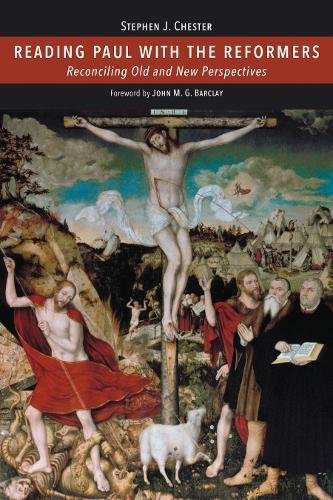Q. Of the three Reformers you focus on, the one who seems nearest the mark to understanding Paul, in my view, is Melanchthon. He talks about both the forgiveness of sins associated with ‘justification’ and also the real change in the believer worked by the Holy Spirit. But even he gets confused it seems when he thinks of the former in terms of legal language. So let’s be clear— being pardoned is not the same thing as being declared righteous. Being forgiven, like being pardoned involves the judge knowing that the person is actual guilty but is having mercy on him. But that action by the divine judge sets an ungodly and sinful person back in right relationship with God. There is no declaration that he is righteous, nor is there a declaration that Christ is righteous for him, so that there is a legal fiction involving the image ‘when God looks at the sinner, he only sees Christ’. Melanchthon at least seems to be struggling in the right direction on these matters. All of them are in agreement that Christ’s death paid the price for human sins so that we don’t have to do so. That however is a different matter than saying Christ is righteous for us or in our place and we have only ‘righteousness by association or by union with Christ’. Thanks for spending so much time on Melanchthon. We don’t usually get to hear his voice so clearly. If you had to evaluate the three Reformers in terms of who was most close to understanding Paul, would you say it was Melanchthon?
A. No, your judgment is actually the reverse of my own here! I wanted to give Melanchthon a fairer hearing than he usually receives and to dispel the idea that his contribution begins and ends with understanding justification in forensic terms. He has much more to say about relationship than the usual charge of justification as a cold legal fiction allows. Also, as you say, he is clear that justification is always accompanied by a real change in the believer worked by the Holy Spirit. However, I find little in his work that responds exegetically to Paul’s vocabulary of participation in and with Christ and for me this is a major omission. I find both Luther and Calvin more satisfying exegetically because in their different ways they both integrate justification with participation in and with Christ. It’s only when we are found in him (Phil 3:9) that we have the righteousness which comes from God through faith. I therefore do think that believers receive the righteousness of Christ, but Christ is not to be reduced to his righteousness, as important as it is. He is also for us wisdom, sanctification, redemption (1 Cor 1:30) etc.












